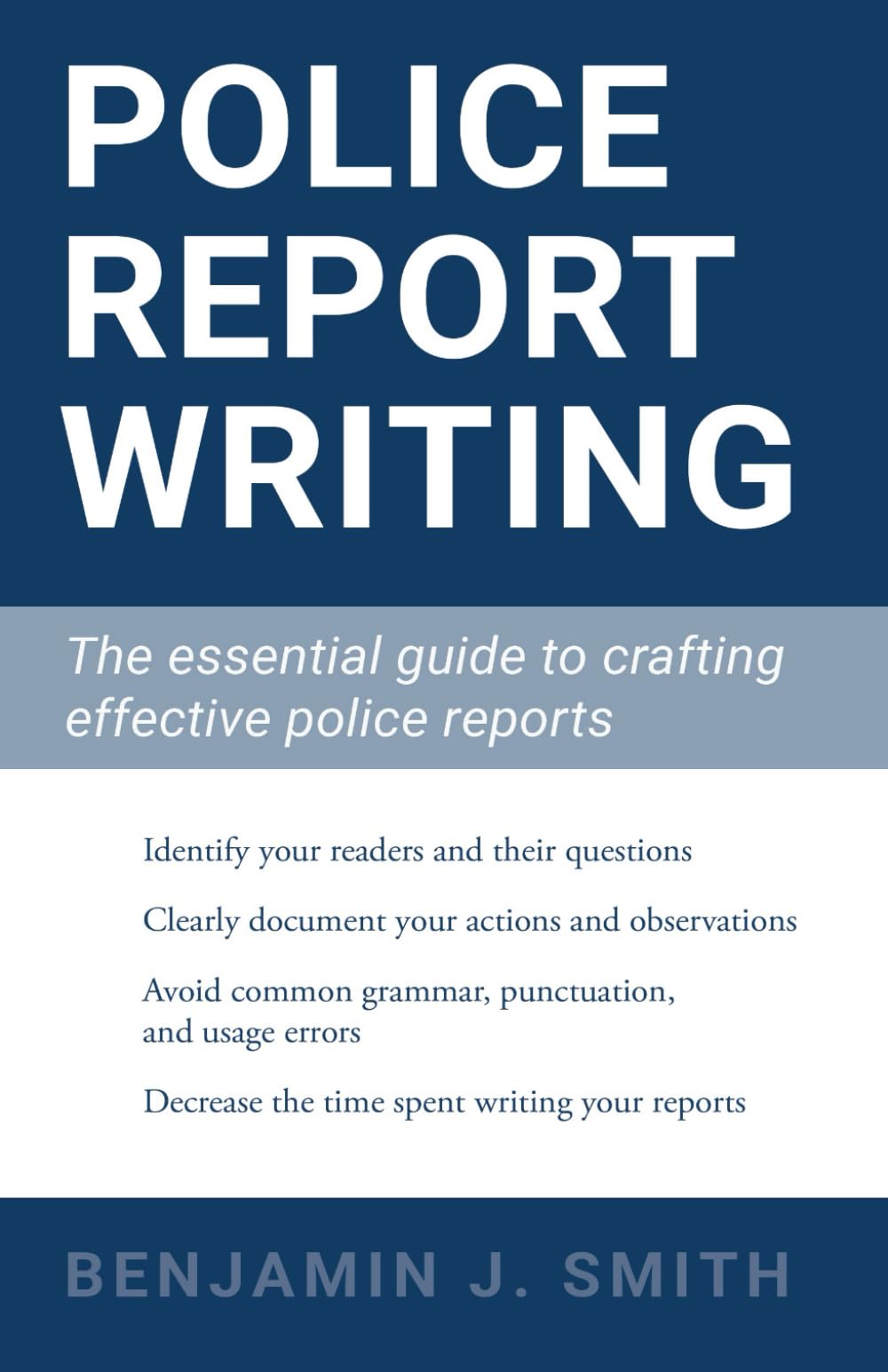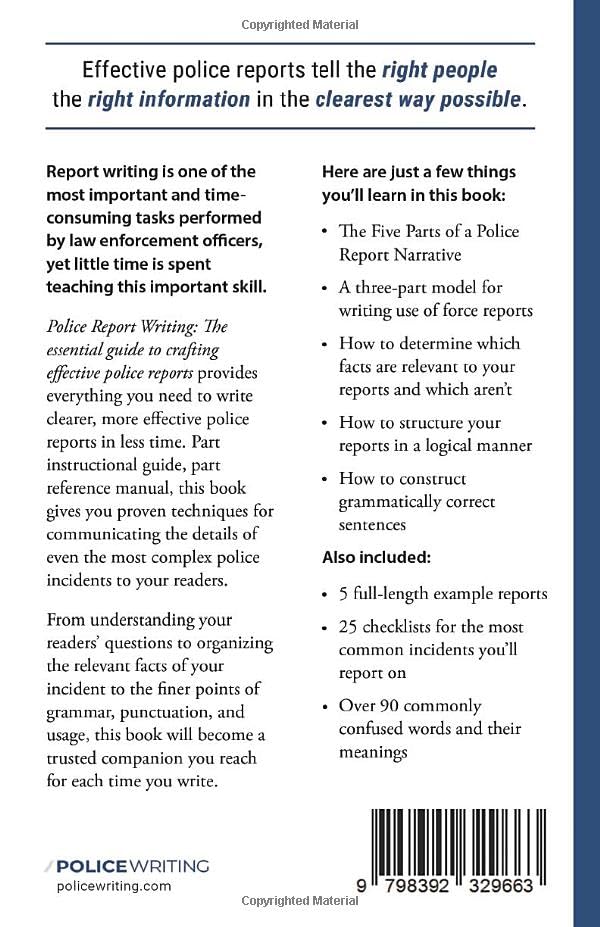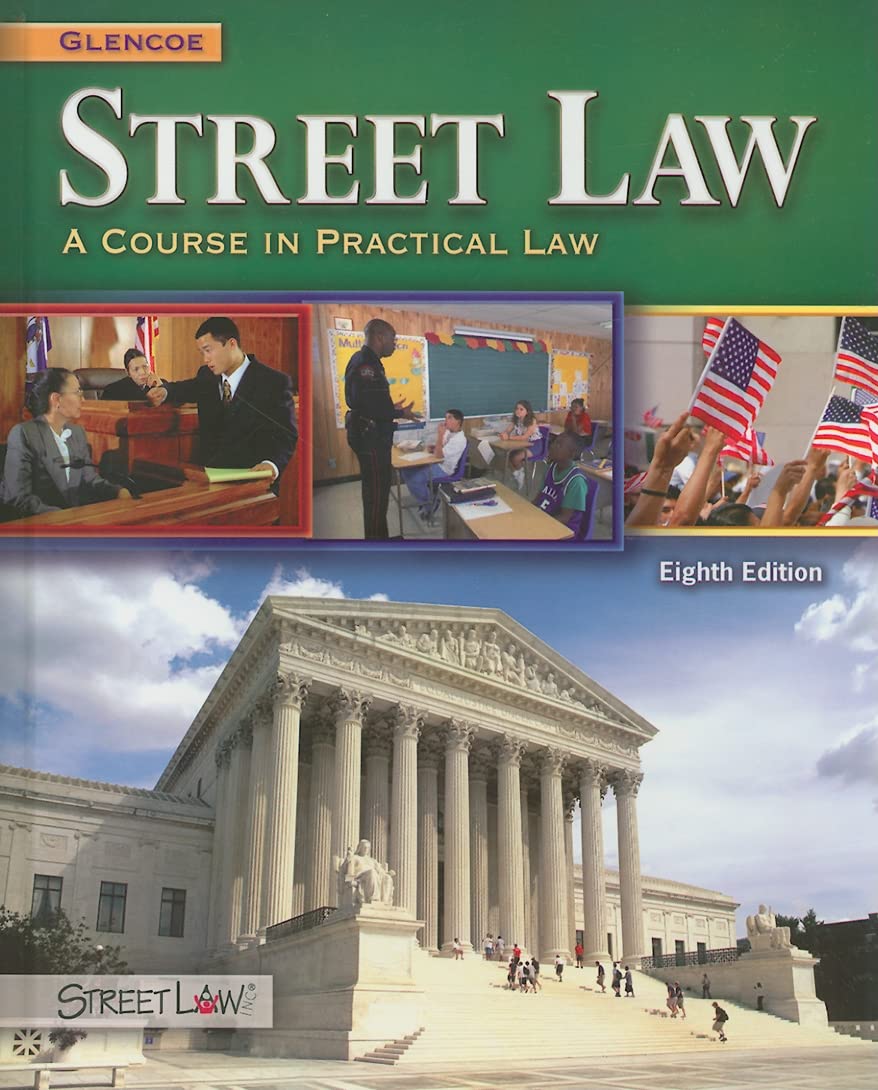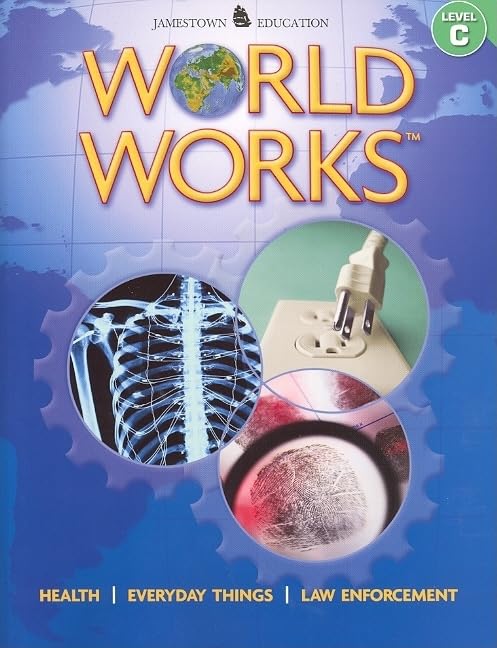From the back cover: Effective police reports tell the right people the right information in the clearest way possible. Report writing is one of the most important and time-consuming tasks performed by law enforcement officers, yet little time is spent teaching this important skill. Police Report Writing: The essential guide to crafting effective police reports provides everything you need to write clearer, more effective police reports in less time. Part instructional guide, part reference manual, this book gives you proven techniques for communicating the details of even the most complex police incidents to your readers. From understanding your readers’ questions to organizing the relevant facts of your incident to the finer points of grammar, punctuation, and usage, this book will become a trusted companion you reach for each time you write. Here are just a few things you’ll learn in this book: The Five Parts of a Police Report Narrative A three-part model for writing use of force reports How to determine which facts are relevant to your reports and which aren’t How to structure your reports in a logical manner How to construct grammatically correct sentences Also included: 5 full-length example reports 25 checklists for the most common incidents you’ll report on Over 90 commonly confused words and their meanings From the Introduction: Police reports are not just documentation tools; they are communication tools. Your police reports communicate information about an incident to people who need that information to do their jobs. To be an effective communication tool, your police reports must tell the right people the right information in the clearest way possible. This definition includes three components. The right people. Since police reports are communication tools, you must first determine who you are communicating with. Writing a well-written report for the wrong readers is the same as writing a poorly-written report for the right readers: they both fail to communicate effectively. Chapters 1-3 will introduce you to your readers, help you understand their purposes for reading your reports, and explore some of the questions they will expect your reports to answer. The right information. Your readers expect your reports to provide specific information in a particular format. Since each incident presents you with hundreds–if not thousands–of discrete pieces of information, this may seem like an impossible task. Fortunately, most information falls into just a few categories, and that information can be organized and presented in a logical way. Chapters 4-6 will teach you methods for determining what information is relevant to your reports and how best to organize that information. The clearest way possible. Since police reports are written documents, readers expect them to adhere to standards of English grammar, punctuation, and usage. Additionally, readers expect you to adopt a style of language and composition common to police reports. Chapters 7-15 cover matters of style, grammar, punctuation, and usage. Chapters 16-20 give you techniques and examples to make your reports as clear as possible.
Police Report Writing: The essential guide to crafting effective police reports
$19.00
This book provides instruction on effective writing and communication skills within the context of law enforcement studies.



![[ Robinson Crusoe (Aladdin Classics) By Defoe, Daniel ( Author ) Paperback 2001 ]](https://m.media-amazon.com/images/I/41fGqkctp7L.jpg)



Reviews
There are no reviews yet.